A good book is an essential element of a real vacation. At least it is for me. I used to bring two or three for just a week. Now I have a toddler, so my personal goal is to get through a hundred pages in a month (wishful thinking if ever I saw one!). But for those of you who can and do enjoy reading I’ve prepared this summer list that is both enjoyable and psychologically instructive.
Come As You Are, by Emily Nagoski
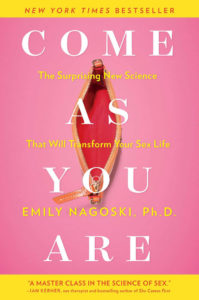
This book promises women a better sexual life, but what it really provides is much more. Emily Nagoski’s clear, scientific and deeply compassionate description of female sexuality manages to include the bodily wellbeing as a whole. She keeps telling the reader that what we are accustomed to label as dysfunctional is actually normal. If it is not painful it is normal. This seems like a good mantra to me, and I actually use a very similar explanation, when patients ask me if something in their behaviour or life is “normal”.
“Come as you are” is full of practical advice, references to useful resources and real-life examples. The same characters appear throughout the book, so we can follow their progress and development, while applying (or contemplating) changes in our own lives.
This book is a real must read for everyone. It is written for women, but I would suggest it to men as well. Nagoski gives answers to many enigmas that men struggle with. For example, how your female partner can enjoy sex without having an orgasm more than when she does.
The Happiness Hypothesis, by Jonathan Haidt
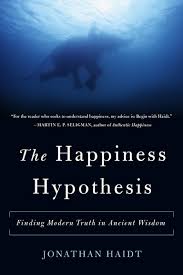
In his book Jonathan Haidt seems to cover most of human mental and emotional functioning in search for a way to happiness. If you are as passionate about curious facts and experiments in the field of psychology as I am, this is a perfect summer read for you. It could win a prize for the amount of examples per page. And yet it remains easy to read and entertaining.
However, I would advise the reader to be weary of taking all the conclusions for granted. Haidt’s views sometimes strike me as excessively biology- and cognitive-oriented. But the facts he describes remain the same and it is your choice what to make of them (if anything).
The Story Factor, by Annette Simmons
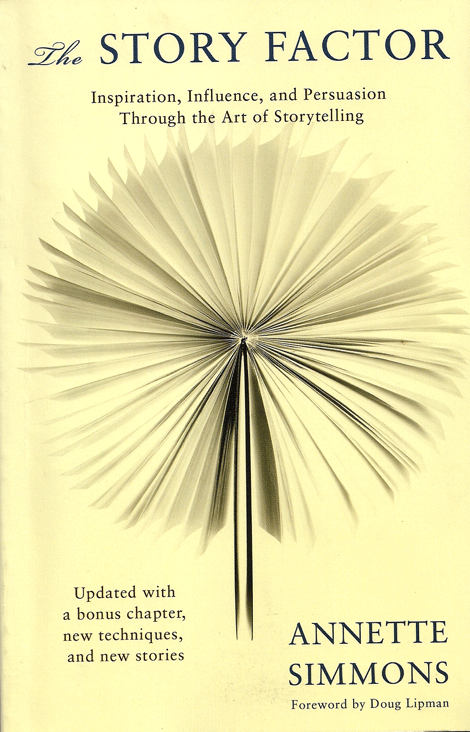 As a little girl my dream was to become a fairy-tale teller. At the time it seemed to be the closest one could get to being a real fairy. My actual profession turned out to be the opposite: I listen much more than I talk. However, stories still fascinate me to this day.
As a little girl my dream was to become a fairy-tale teller. At the time it seemed to be the closest one could get to being a real fairy. My actual profession turned out to be the opposite: I listen much more than I talk. However, stories still fascinate me to this day.
Annette Simmons is a leading expert on stories and how to find and tell them. This book seems to be oriented towards people, who are making their career in the executive world and want to learn alternative approaches to convincing people and making a point. However, I find storytelling to be a universally useful skill. You can adapt Simmons’s advice to everything from high-level negotiations to convincing your child to eat broccoli.
The Story Factor is full of entertaining stories from all sorts of cultures and times. Simmons is weaving recommendations and tips into her stories, thus demonstrating the power and beauty of storytelling as a tool to bring information across.
If you are planning to travel this summer, take this book with you (or download the audio version) and it will help you use this experience to create, research and tell stories.
Man’s Search For Meaning, by Viktor Frankl
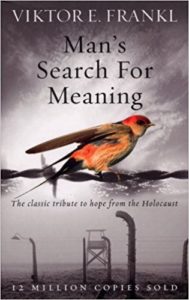
This one has long become a classic, yet I’ve met a lot of people, even psychotherapists who’ve never heard of Viktor Frankl. I first read Man’s search for meaning some 15 years ago during a summer beach vacation. One does need some extra sun to get through the description of the author’s experience of concentration camps. However, my overall feeling after reading this book was of blazing light somewhere in the middle of my chest. It forever changed my life and determined my future choice of psychotherapy school.
Viktor Frankl was the founder of Logotherapy and Existential Analysis. This book explains the basics of the method and its origins in the author’s life experience. The cornerstone of Frankl’s teaching is the importance of meaning. Even though many scientists since (see examples in The Happiness Hypothesis) have demonstrated how having a perceived sense of meaning and purpose in life are crucial for happiness and fulfilment, modern culture still overlooks this fact, teaching us to focus on accumulation and competition. If you feel that the chase of material items is not enough and you need to find something larger in life – this book is for you!
Creatures Of A Day, by Irvin Yalom
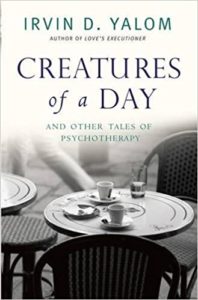
Creatures of a day is a collection of stories that occurred between the great therapist and his patients. It would be a good read for both therapists and clients. It is a moving review of encounters and struggles on both sides of a therapeutic relationship.
As in all of Yalom’s books, his latest work is a pleasurable and enlightening read that poses deep questions and gives a hint at some answers. Stories of sorrow and joy, moral dilemmas and difficult choices are all told with a true novelist’s brilliance.
This book (along with many others by the same author) is a good choice for people who like to think and feel deeply, but never say no to a colourful description.



Comments are disabled